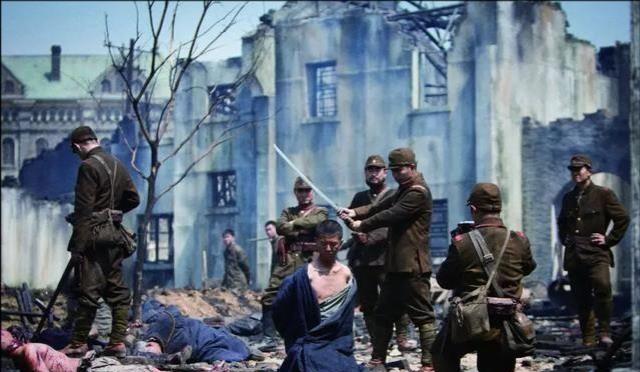The Nanjing Massacre massacre is the most humiliating and tragic history of the Chinese nation in modern history, the Japanese army that invaded China carried out a massacre in the ancient city of Jinling for more than a month, the cruelty of its means, the bloodiness of the scene has completely departed from the category of human civilization, in this unprecedented catastrophe, a total of more than 300,000 compatriots were martyred, becoming an eternal pain in the hearts of the Chinese people!

After the victory of the War of Resistance Against Japanese Aggression, the Allies tried the Japanese war criminals who launched the war, and in the process of trying the Nanjing Massacre massacre, whether at the Tokyo Trial Court or the Nanjing Trial Court, when people exposed the various crimes of the Japanese army in the Nanjing Massacre, people were deeply shocked by the Massacre methods of the Japanese Army to exterminate humanity!
In the numerous testimonies exposing the bestiality of the Japanese army, it is often heard that thousands of soldiers and civilians were slaughtered by the Japanese army at one time, and the scene was unbearable and bloody. So, in the Nanjing Massacre, so many prisoners of war did not know how to resist? The Japanese army recorded the most tragic scene that year.
Today, many materials on the Nanjing Massacre have left an incredible impression that many compatriots always sit still and do not make any resistance when faced with the butcher knives of the Japanese army, but this is not the case.
In 1937, when the Japanese army attacked Nanjing, the capital of China at that time, the soldiers and civilians in Nanjing were not willing to be slaves to the country at the time of the destruction of the country and their families, and also carried out some unknown resistance!
After the war, the War History Room of the Japanese Defense Research Institute: "Army Operations of the Chinese Incident" recorded several tragic and magnificent historical materials of the Nanjing Massacre: "On December 13, when the whole city was searching for the deserters of the defenders, a group of Chinese soldiers were besieged by the Japanese army on the top floor of the fourth floor of the Judicial Yuan, and they did not want to become prisoners of war, so they all went to great lengths to seize the weapons in the hands of the Japanese army, and although they were all killed in battle, they also killed many Japanese troops on the spot. "On the night of December 17, near the Shogunate Hill in Nanjing, thousands of captives also resisted and attacked the escorted soldiers, about a thousand prisoners were killed, and the rest all fled."
Through the above records of the Japanese army, it is not difficult for us to find that when the Japanese army was slaughtering prisoners of war, these Chinese soldiers did not want to sit still, they rose up to resist, knowing that they were dead, and then pulled on the back of a few devils, which was the tragic end of the prisoners of war.
In view of the heroic performance of the prisoners of war's resistance, the author believes that when the city of Nanjing fell, a large number of Kuomintang officers and soldiers did surrender to the Japanese army, because according to the Geneva Convention, the defeated party who voluntarily surrendered could avoid death and enjoy preferential treatment for prisoners of war.
However, the inferior Japanese army completely disregarded international regulations and carried out a brutal mass massacre of more than 50,000 Kuomintang prisoners of war, and the reason why these prisoners of war resisted was because they saw that the Japanese army was not convinced, so they began to resist.
At the same time, the Japanese recorded the most tragic scene that year, in the process of the large-scale massacre of the Grass Shoe Gorge, tens of thousands of prisoners of war tied by their backhands, braving the dense rain of bullets, shouted: "Seize the gun!" Grab the gun!" Rushing to the Japanese army with bare hands, they were ruthlessly slaughtered!
It can be seen from this that the prisoners of war resisted so tragically, in the real Nanjing Massacre, they did not sit still, but at the last moment of their lives, they safeguarded the dignity of the country and the nation, and launched the last charge with an indomitable spirit of resistance.
The author believes that although the fall of the city of Nanjing made the Kuomintang troops guarding the city bear the insult of "fleeing without fighting", these Kuomintang soldiers showed the Japanese army the indomitable spirit of resistance of the Chinese people through the final resistance, and everyone can imagine the most tragic scene at that time, when more than 10,000 prisoners of war rushed unarmed to the japanese machine gun position.
In short, with regard to the tragic and magnificent performance of the prisoners of war in the Nanjing Massacre, the Japanese army invading China saw that the Chinese people were not willing to be slaves to the country, and with their blood and lives, they showed the world the nature of an ancient nation that would never bow its head!